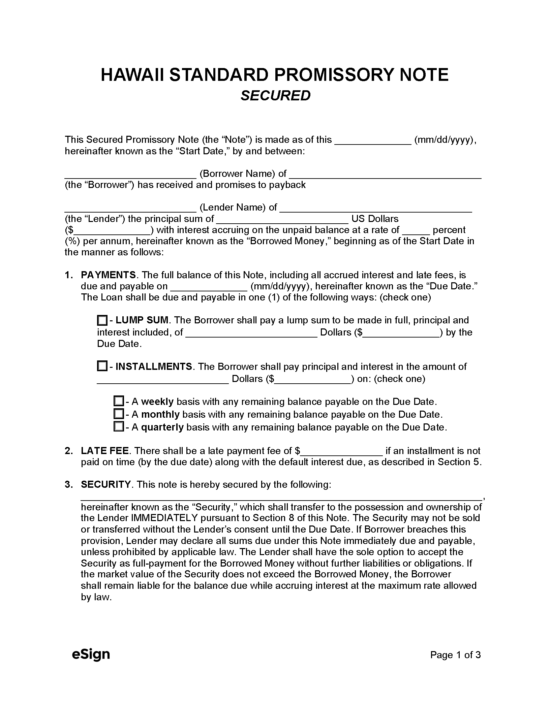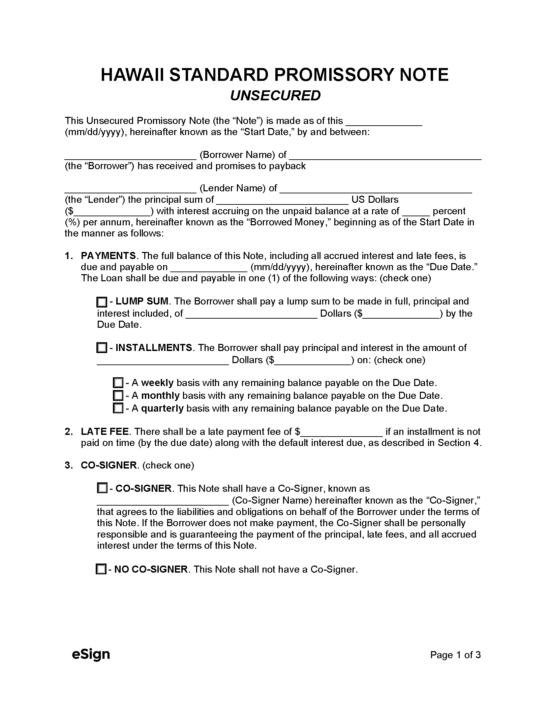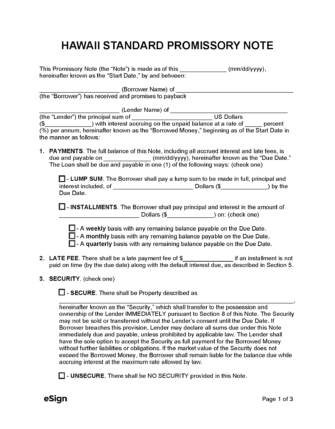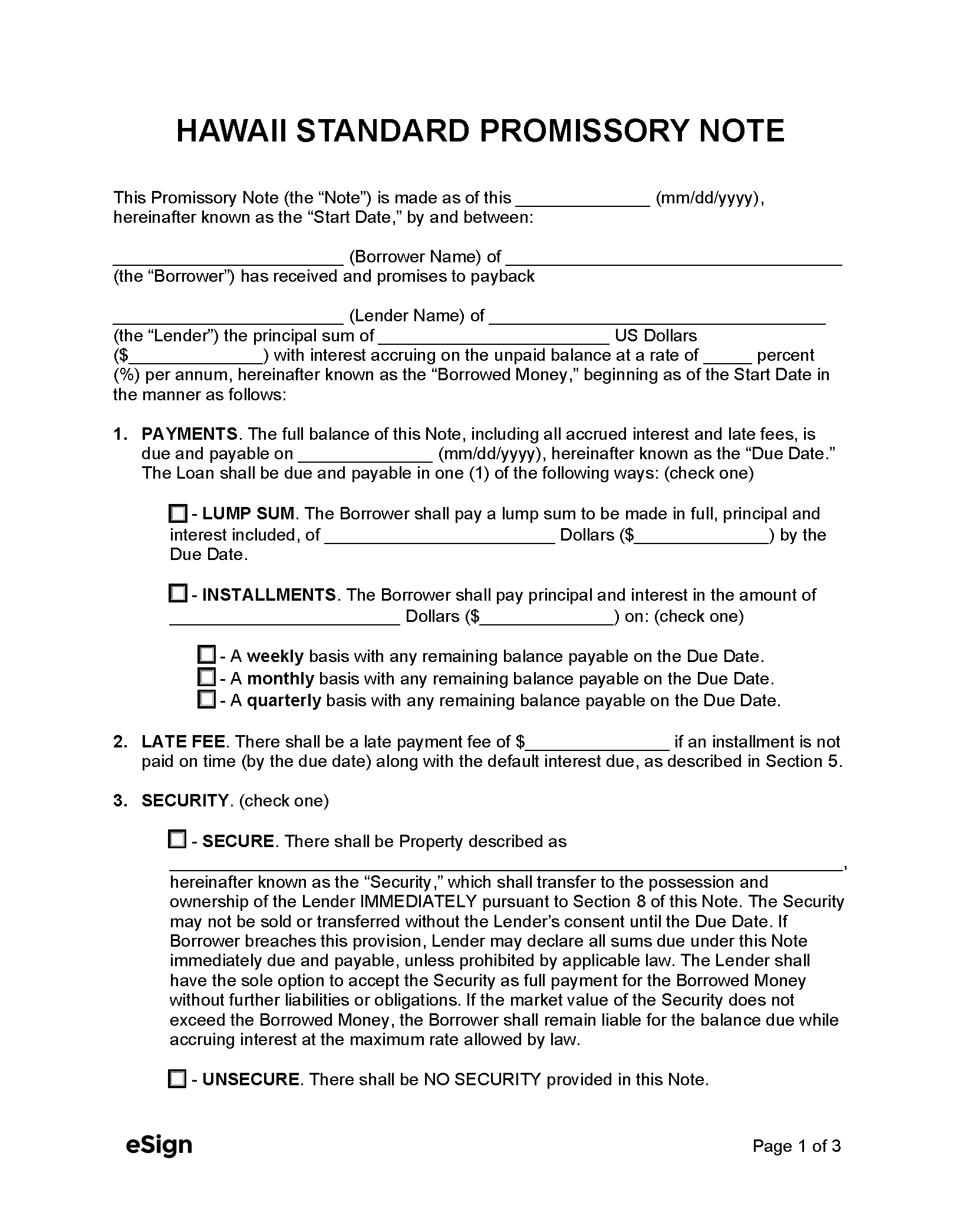Types (2)
 Secured Promissory Note – Under the terms of a secured promissory note, the borrower must pledge an asset as collateral before receiving funds.
Secured Promissory Note – Under the terms of a secured promissory note, the borrower must pledge an asset as collateral before receiving funds.
Download: PDF, Word (.docx), OpenDocument
 Unsecured Promissory Note – This promissory note does not require the borrower to provide collateral to the lender.
Unsecured Promissory Note – This promissory note does not require the borrower to provide collateral to the lender.
Download: PDF, Word (.docx), OpenDocument
Laws
- Interest & Usury Laws: Title 26, Chapter 478
- Usury Rate in General (§ 478-2): 10%, unless there is a written contract fixing a different rate, in which case the interest rate cannot exceed the contract rate.
- Usury Rate for Judgments (§ 478-3): 10%
- Usury Rate for Home Business Loans (§ 478-4): *1% per month or 12% per year.
- Usury Rate for Consumer Credit Transactions (§ 478-4): *1% per month or 12% per year (excluding credit card agreements).
*If the lender is a financial institution other than a credit union or trust company, the maximum interest rate is 2% per month or 24% per year.

